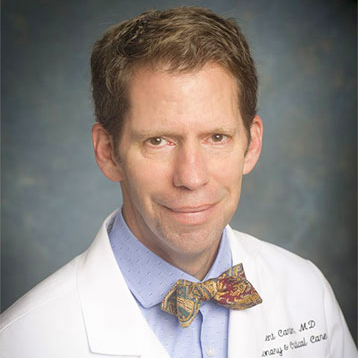Our researchers share their thoughts on their work and goals for the North Birmingham neighborhoods.
 Veena Antony, M.D.
Veena Antony, M.D.
Chronic Obstructive Pulmonary Disease or COPD refers to a group of lung diseases that block airflow and make it difficult to breathe. It causes symptoms like wheezing, shortness of breath and chronic cough. COPD is common in the North Birmingham community, and the heavy metals present in air pollution are a known cause of this illness.
UAB Pulmonology Professor Dr. Veena Antony will lead a research project to study the impact that heavy metal particles have had on residents in the community.
“My primary interest arose after recognizing that many of the patients that I saw in my clinic came from the same area,” says Dr. Antony. “I started asking the patients about where they lived and realized that perhaps their long-term exposure to toxic chemicals was contributing to their condition.”
 Jessy Deshane, Ph.D.
Jessy Deshane, Ph.D.
When a person has asthma, their airways become inflamed, narrow and swell, and produce extra mucus, making it difficult to breathe. The condition is triggered by allergens and irritants in the environment, including air pollution.
Dr. Jessy Deshane, UAB associate professor, will lead a project to examine the relationship between air pollution and the severity of asthma among children who live in the North Birmingham Community..
“We expect that the results of our studies will educate the community of North Birmingham about safety measures that need to be taken to protect children and new medicines that may become available to treat illness associated with heavy metal exposures,” says Dr. Deshane.
 Brent Carter, M.D.
Brent Carter, M.D.
While an upper respiratory tract infections, like the common cold, affect a person’s nose and throat, lower respiratory tract infections happen in the lungs. These illnesses, such as bronchitis and pneumonia, involve severe coughing and difficult or rapid breathing; they are typically caused by a virus or bacteria. Air pollution is another common cause of lung infections.
Dr. Brent Carter, UAB professor and pulmonologist, will lead a research project to examine the possible connection between heavy metal exposure and lung infections.
“We hope that our results will identify ways to reduce the prevalence and severity of lower respiratory tract infections among North Birmingham residents,” says Dr. Carter.
 Sergey Mirov, Ph.D.
Sergey Mirov, Ph.D.
Long-term industrial air pollution in North Birmingham has created higher than normal levels of toxins in the environment, increasing health risks among residents. Finding ways to detect the presence of these toxins is essential to ongoing research.
The research project led by UAB Physics Professor Dr. Sergey Mirov will develop new ways to measure pollution with infrared lasers.
“The project focuses on developing portable, cost-effective, sensitive and fast solutions for quantifying exposure to heavy metals,” Dr. Mirov says. “This will give us clear information on how to use medicine to properly evaluate and treat patients.
 Uday Vaidya, Ph.D.
Uday Vaidya, Ph.D.
Industrial pollution in North Birmingham from nearby factories has not only affected the air quality, but it has also infiltrated the soil in the area. Food grown in the contaminated soil poses a serious health risk for the neighborhood. Once the ground has absorbed the heavy metals, getting the tiny particles out without harming the environment requires tremendous innovation.
This is where Dr. Uday Vaidya comes in. His research project will create and test affordable ways to use carbon filter mats to absorb contamination from the soil, as well as filters for building interiors and nets for placement in lakes.
“The area of natural fibers for filtration offers environmentally friendly and biodegradable solutions,” Dr. Vaidya says.